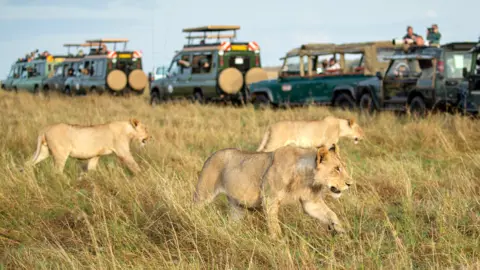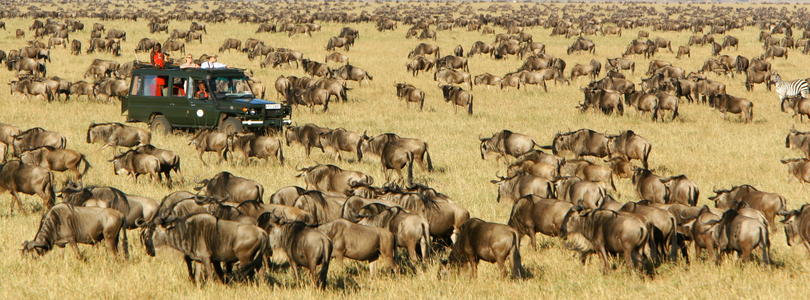New Info For Selecting Taxi In Mombasa
New Info For Selecting Taxi In Mombasa
Blog Article
What Safety And Security Concerns Should I Consider Before Going To Mombasa, Kenya For A Holiday?
To make sure that your trip to Mombasa is pleasant and stress-free, you should be aware of the security and safety concerns. Here are some important points to keep in mind:
1. General Security
Keep yourself informed. Keep abreast of local news and travel warnings from your home country.
Sign up at the Embassy of your choice.
2. Health precautions
Immunizations: Make sure you stay up-to date with routine vaccinations. You may want to consider additional vaccines, such as Hepatitis A and B, and Typhoid, Yellow Fever.
Mombasa's malaria has become endemic. Take antimalarial drugs, use insect repellents, and wear long sleeves during the evening.
Water and Food Safety Drink only water from a bottle or that has been boiled. Avoid ice cubes and eat foods that are well cooked. Be cautious with street food.
3. Personal Safety
Avoid walking alone at night: Stay in areas with good lighting and people. Avoid walking on the beach or in secluded areas after the darkness.
Protect Your Assets from Vandalism Hotel safes are a great way to store passports, cash, and other important items. Avoid displaying expensive items like electronic devices or jewelry.
Choose Reliable Transport: Use licensed taxis, ride hailing service or transport arranged by your hotel. Beware of cabs that are not marked.
4. Local Laws and Customs
Dress respectfully and with respect Particularly when visiting places of worship. Be aware of local customs and traditions.
Kenyan drug laws are strict and are punishable by harsh penalties. Beware of using illegal drugs.
Ask permission before taking pictures of people living in rural areas buildings, military or government structures.
5. Beach Safety and Water Safety
Swim Safely: Pay attention to local recommendations regarding swimming conditions and currents. Make sure you are in designated swimming areas.
Be aware of marine wildlife such as jellyfish and sea Urchins. When you walk on the beach, make sure you be wearing the appropriate shoes.
6. Crime Prevention
Petty Crimes: The theft of a purse, bag stealing and other small crimes can occur in busy areas. Make sure your possessions are secure and be vigilant.
Avoid strangers who seem to offer too much assistance or who are making deals that sound too good. Utilize authorized tour operators.
It is important to know local emergency numbers for the police (999) and fire (999) and ambulance (999). Keep the contact information of the consulate or embassy in your pocket.
7. Natural Hazards
Weather: Mombasa enjoys a tropical climate with the potential for floods and heavy rainfall. This is especially the case during rainy seasons, April-June and between October and November. Be aware of weather forecasts.
Sun Protection: Guard yourself from heat exhaustion and sunburns by wearing hats and hats, applying sunscreen and drinking plenty of water.
8. Travel Insurance
Comprehensive Coverage: Make sure you have travel insurance that covers medical emergencies, theft, loss and travel interruptions. Examine the coverage in your policy in relation to activities such as water sports.
If you think about these security and safety considerations, then you can enjoy a better holiday in Mombasa. Check out the top kenya tours and safaris for blog tips including tours safari africa, holiday packages mombasa, african safari packages, mombasa packages, kenya travel packages, tours and travel company in kenya, africa safaris and tours, mombasa travel agency, kenya safaris, safar kenya and more.
What Are The Weather Considerations Must I Be Aware Of Before A Vacation In Mombasa Kenya?
When you plan a trip to Mombasa, Kenya, understanding the local weather patterns is essential to packing properly and getting the most of your time. Here are the key factors to consider when planning your trip:
1. Climate Overview
The climate in Mombasa is tropical and humid throughout the throughout the year. Expect a warm and humid climate with temperatures ranging between 24degC (75degF) to 32degC (90degF).
2. Seasons
This is a time of high temperatures and high humidity. It's also a crowded tourist period, especially during December and January.
Long Rains (April to June) The rainy season can bring heavy rainfalls, and sometimes thunderstorms. It is often difficult to drive on roads that are muddy. The season is not busy for tourists.
The coolest season runs between June and October, when temperatures and humidity are the lowest. The weather is usually pleasant and ideal for outdoor sports.
Short Rains: In this period it is a time of fewer and less severe rain showers. The rains tend to be only a few minutes, later, sunshine follows.
3. Packing Tips
Lightweight Clothing: Bring lightweight, breathable clothing such as cotton and linen to stay cool in the summer heat.
Rain Gear: If you're traveling in the rainy season, bring an waterproof jacket, an umbrella, and waterproof shoes.
Sun Protection: A sunscreen with an extremely high sun protection factor (SPF) along with a wide-brimmed cap as well as sunglasses and lighter clothing to cover your skin can help protect yourself from the harsh sunlight.
Swimwear: Make sure you bring your swimsuit when visiting the hotel pools and beaches.
4. Weather-specific activities
Beach Time: The ideal time to enjoy the beach is during the cooler months (June-October), when the weather and conditions are ideal.
The clear, calm water between November and March is perfect for snorkeling diving, snorkeling and other water sports.
Wildlife Viewing The cooler season (June to October) is a great time to go on wildlife tours and safaris as the weather is more bearable.
5. Considerations of Health
Hydration: The scorching and humid climate demands you to be well-hydrated. Drink plenty of water, particularly when spending time in the outdoors.
Health-related infections involving heat: Be aware that heatstroke and heat exhaustion can occur. Wear loose clothing Take breaks in the shade and stay away from vigorous exercise during the hottest temperatures.
6. Travel Adjustments
Be aware of delays if you intend to travel during rainy season. You may find that some roads are impassable and outdoor activities may be restricted.
Tropical Rains: Sometimes tropical rains can cause flight delays. Plan your trip ahead and be aware of delays.
7. Environmental Concerns
Natural Hazards - Remember that heavy rain can cause flooding. Be aware of the current weather conditions, and seek local advice on security.
Be aware of tides. They can be very different. Consult tide schedules to ensure safe beachcombing and swimming.
If you know the importance of weather, you will be in a position to plan your trip carefully, pack properly and ensure your trip to Mombasa is secure. Take a look at the recommended kenya safari packages prices for website advice including afri safari, africa tours and safaris, africa and safari, safari tour, safaris beach, tour firms in kenya, tour and travel company, tour mombasa, kenya safari and beach packages, tours and safaris and more.
What Safari And What Tour Planning Should I Know When Holidaying In Mombasa, Kenya?
A trip or safari in Mombasa requires some careful planning to make it an unforgettable trip. Here are some crucial aspects to consider:
1. Selecting the right Safari or Tour Operator
Reputation - Select a reliable operator who has good reviews. Select tour operators that belong to the Kenya Association of Tour Operators.
Check out the different packages offered by tour companies. Packages range in price from low-cost to luxurious and can differ in terms of duration, inclusive activities, as well as accommodation.
Guides: Ensure that the operator provides experienced and knowledgeable guides, at least accredited by the relevant bodies.
2. The most sought-after Safari Destinations From Mombasa
Tsavo national park Kenya's largest game reserve is split into Tsavo West (east) and Tsavo West (west). It is famous for its diverse wildlife, including rhinos and elephants.
Amboseli National Park has a huge elephant population as well as breathtaking views of Mount Kilimanjaro.
Shimba Hills National Reserve, close to Mombasa provides beautiful landscapes and the possibility of seeing rare animals like the Sable antilope.
Maasai Mara (Mombasa): This place, although farther away from Mombasa is a truly unique nature experience and is renowned for its Great Migration.
3. Safaris and Tours are available in many different styles.
Game Drives are an old-fashioned safari, which involves 4x4 vehicles for game drives, providing close encounters with wildlife.
Walking Safaris: These guided walks are an excellent way to explore the wilderness, and learn more about its smaller creatures and plants.
Balloon Safaris. They are available in certain parks, such as the Maasai Mara. You have the opportunity to see from a bird's eye view.
Beach and Bush Combos - Combine an experience on safari and a time spent at the gorgeous Mombasa beaches for an unforgettable experience.
Cultural Tours: Visit local villages and historical sites, such as Fort Jesus and Mombasa Old Town.
4. Timing, Duration
Best time to visit The dry season (June-October) is the best season to view wildlife, because animals are more likely to be near water sources. The Great Migration in Maasai is generally between July and November.
Safaris can be one-day trips or a week-long adventure. Take note of your schedule as well for the time you'd like to stay in Africa.
5. What to Pack
Clothing: Wear light, breathable clothing in neutral shades. Wear the long sleeves as well as pants for protection against mosquitoes in the evening.
Footwear: For walking safaris comfortable walking shoes or boots is crucial.
Accessories: Wear a wide-brimmed hat, sunglasses as well as sunscreen and insect repellent.
Gear: Binoculars as well as a good digital camera that has batteries and memory cards are necessary for wildlife viewing.
Take all medications you require. You might want to bring antimalarial medications as well as a basic first-aid kit, and any other medications you may have.
6. Health and Safety
Vaccinations. It is essential to be vaccinated according to the recommendations.
Malaria Prevention - Use insect repellents and long-sleeved clothing at night. Take a look at anti-malarial medications.
Food and water safety Drink filtered water, bottled or purchase it from a trusted restaurant.
7. Costs and Payments
Budgeting: Safaris may be costly, so you should plan your budget well. Consider all-inclusive packages, which include accommodation, meals, activities and more.
Most companies accept bank transfer and credit cards. Check your payment options as well as any required deposits.
8. Environmental and Ethical Concerns
Select operators that are eco-friendly:
Wildlife Protection. Respect wildlife. Maintain a secure and safe distance. Do not disturb animals. Do not purchase products that are made from endangered species.
9. Travel Insurance
Insurance Coverage - Ensure that your travel policy covers medical emergencies, as well as possible travel disruptions.
10. Booking and Confirmation
Safaris can be very popular and they book quickly, especially in peak season. Book early.
Confirmation : Discuss with your tour operator all the details including pick-up times, itinerarys and contact information.
Take note of these points to plan an organized and enjoyable safari experience or tour starting from Mombasa. This will enhance your experience in Kenya. Read the top rated mombasa old town for site recommendations including kenya mombasa holiday packages, trips to kenya africa, mombasa travel agency, kenya mombasa holiday packages, safari and tours, mombasa travel agency, kenya safari packages, afri safari, kenya safari holiday, kenya tours and more.